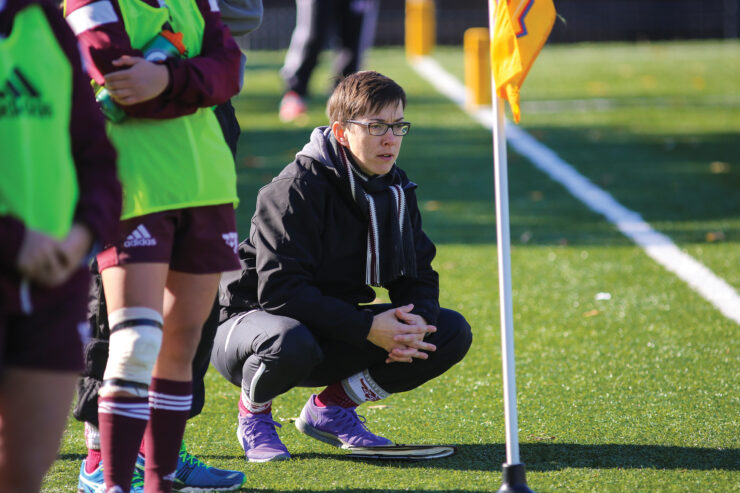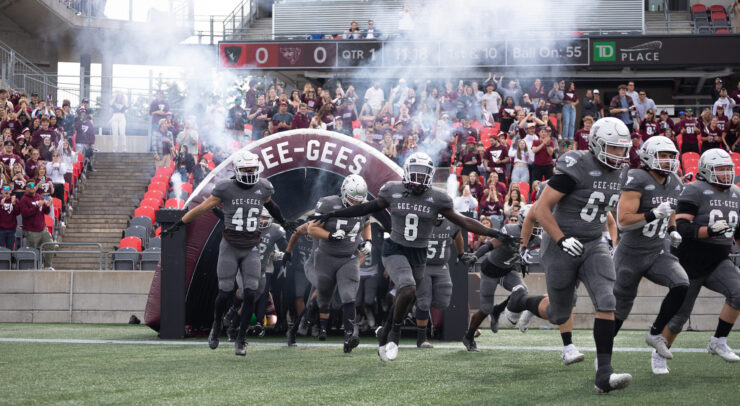BOA chairperson clarifies reasoning behind rejection of petition
The upcoming fall General Assembly (GA) for the Student Federation of the University of Ottawa (SFUO) takes place on Nov. 12, with the deadline for submitting motions having already passed on Oct. 21. However, one student’s motion was rejected by the SFUO due to it being in an online format.
On Oct. 14, Marcus Mattinson, a fourth-year public administration student at the U of O, started a Facebook campaign asking students to sign his petition to remove the levy for Ontario Public Interest Research Group (OPIRG), saying that students “should not be forced to fund extremist political groups.”
Mattinson’s post further explained that OPIRG collects $150,000 from the SFUO each year, which comes from students themselves. According to the post, the U of O has a “politically diverse student population” and “OPIRG uses students’ money to fund various far-left, including Marxist and anarchist, groups, such as the Revolutionary Students’ Movement, who describe themselves as ‘revolutionary, combative, militant and anti-capitalist.’”
The post then went on to say that “the possibility of opting out from OPIRG has been greatly under-promoted,” and that “it has been years since the last time students were given the chance to vote on OPIRG funding.”
Mattinson therefore proposed to have the following referendum question included on the winter 2017 election ballot: “Do you support the removal of the automatic Ontario Public Interest Research Group (OPIRG) fee charged to all students at the beginning of every term in exchange for the ability for students to voluntarily contribute to OPIRG should they feel this external organization represent their values?”
The petition was made available via a Google document for U of O students to sign by logging in with their school email.
Mattinson later contacted the Fulcrum, saying that the online petition was “blocked” by Jesse Root, executive coordinator of the SFUO.
“It is important to note that there are no guidelines provided by the SFUO for petitions to bring forward motions to the GA other than the following,” Mattinson wrote in an email to the Fulcrum, highlighting article 3.13.8.2 of the SFUO constitution, which states that all motions require a petition signed by 100 members of the student body, or a two-thirds vote of the Board of Administration.
Mattinson said that it was “absurd” that the word “signed” in the constitution referred only to paper copies of motions, rather than online motions.
“It comes from an unelected paid staff member of the SFUO. Root has reserved the right to interpret the constitution in whatever way pleases him the best, no appeal process, no chance to appeal to elected officials,” Mattinson wrote. “His word is being considered final.”
“Unfortunately, I’m not the only student to be affected by this, hundreds of students are being muzzled by Root’s ruling through other rejected petitions,” Mattinson continued.
“Online petitions are still petitions. They are also more accessible and can even be safer depending on the parameters set by the petition’s creator.”
The Fulcrum spoke with Shawn Philip Hunsdale, chairperson of the SFUO and the BOA, who clarified the reasoning behind the decision not to accept the motion.
According to Hunsdale, the petition was not accepted due to the fact that it was not substantive enough and did not contain enough signatures. Furthermore, Hunsdale explained that paper copies of motions are considered more legitimate than online petitions, since it is easier for someone to retract their signature in an online petition.
Mattinson further wrote to the Fulcrum that “117 signatures were submitted and (Root) has ignored my email for clarification. I believe he meant that since all the signatures were online there were not enough valid signatures. At least that is how I interpreted his email.”
According to Mattinson, however, “There is no legal precedent for Mr. Root to decide that the word ‘signed’ implies the requirement of a paper and pen petition to be presented.”
“With no proper criteria to ban online petitions and no constitutional text to support Root’s ruling, the federation must honour my petition.”
Mattinson has also said that he is prepared to take legal action if the SFUO chooses not to accept his online motion for the Nov. 12 GA.
Correction: On Nov. 4, SFUO vice-president of services and communications Francesco Caruso submitted a statement to the Fulcrum to further clarify the rejection of Mattinson’s online motion, saying: “I wanted to clarify that Mr. Root in no way had anything to do with the Chair’s decision to reject Mr. Mattinson’s motion. Mr. Root is an employee of the Federation to whom motions are submitted, and who then refers the motions to the Chair if any inconsistencies or issues arise. The decision to either reject or accept a motion for the GA is entirely up to our Chairperson, Shawn Philip Hunsdale.” The Fulcrum apologizes for any misleading information provided in the original content of the story.





